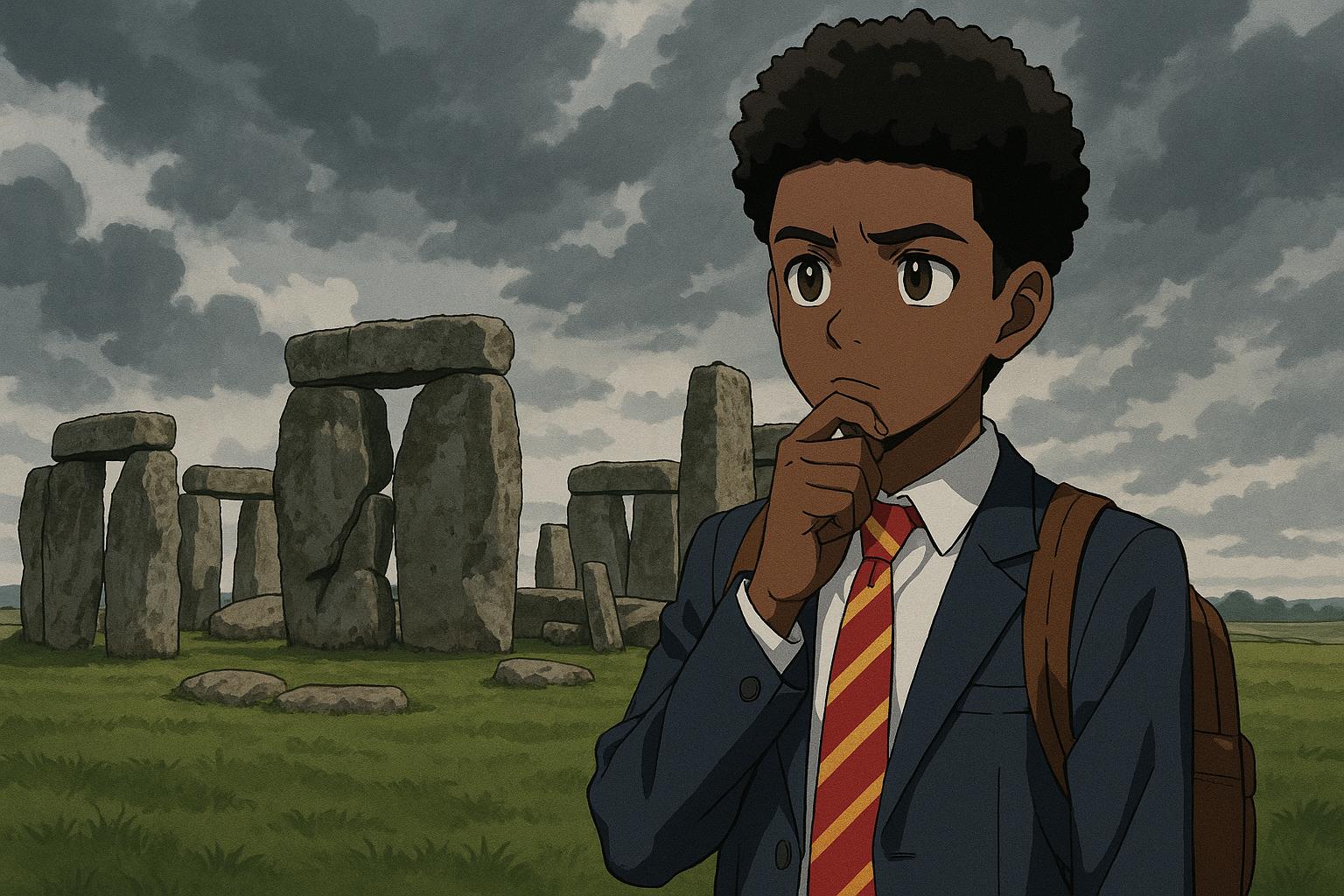The teaching of history in British schools is experiencing a significant transformation, driven by contemporary social movements and evolving educational priorities. Among the most contentious debates is whether Stonehenge, an iconic Neolithic monument, was constructed by Black Britons, a claim featured prominently in the book Brilliant Black British History by Atinuke. This children's book, aimed at young readers, suggests that Britain was predominantly Black for over 7,000 years prior to the arrival of white populations, including during the era when Stonehenge was allegedly built. The book is marketed as an essential addition to school libraries, yet its claims are stirring controversy and concern within the academic community.
Research from the Policy Exchange think-tank highlights the fallout from changes in history curricula following the Black Lives Matter movement. Many educational institutions began revising their history lessons to include more about ethnic minorities in an attempt to combat allegations of racism. Findings indicate that approximately 83% of secondary schools have altered their history teachings in this effort to "decolonise" the curriculum. While some changes have indeed broadened perspectives—introducing topics like the women’s suffrage movement and other aspects of world history—critics argue that such revisions often lead to the promotion of "radical and contested interpretations of the past."
Among these contested narratives is the assertion in Atinuke's book regarding the racial identity of Stonehenge's builders. Historians have expressed scepticism about these claims, suggesting they lack substantial evidence and could mislead students about the complexities of British history. Concerns have been raised that resources presenting unverified claims as fact are increasingly infiltrating classrooms. For instance, some teaching materials reportedly depict the exploitation of slaves as forms of "gender transition," a characterisation fraught with ethical implications.
The shift towards including diverse historical perspectives appears to have come at the expense of more traditional narratives. Research indicates that only 11% of schools are now teaching students about seminal British military victories like the Battles of Trafalgar or Waterloo. Similarly, lessons concerning pivotal historical events like the Battle of Agincourt are found in less than one in five schools. The emphasis on unchallenged narratives and the sidelining of established historical facts could diminish students' understanding of their own heritage.
Atinuke's book has been described as informative and revealing, offering young readers valuable insights into the contributions of Black individuals throughout British history. However, the question remains whether such narratives should be presented without rigorous academic scrutiny. Prominent historians argue there is a responsibility to teach students not just stories, but also the critical skills necessary for interpreting and evaluating historical evidence.
In the broader context, this discourse reflects an ongoing cultural clash in education—a struggle between appreciating the rich tapestry of diverse histories and maintaining fidelity to established historical scholarship. The potential for ideological narratives to overshadow academic rigour poses a complex challenge for educators, who must navigate these waters carefully to ensure that students receive a well-rounded, informed education.
As society grapples with these pressing educational debates, the implications for future generations are profound. The evolution of history teaching, while undoubtedly aiming to broaden horizons and include underrepresented voices, risks compromising the factual foundation upon which history is built if not approached with diligent care and critical thought.
Reference Map
- Paragraphs 1, 2, 3, 4, 5
- Paragraph 1, 2
- Paragraph 1, 2, 3
- Paragraph 1, 3
- Paragraph 1, 2, 4
- Paragraph 2
- Paragraph 1, 2
Source: Noah Wire Services
